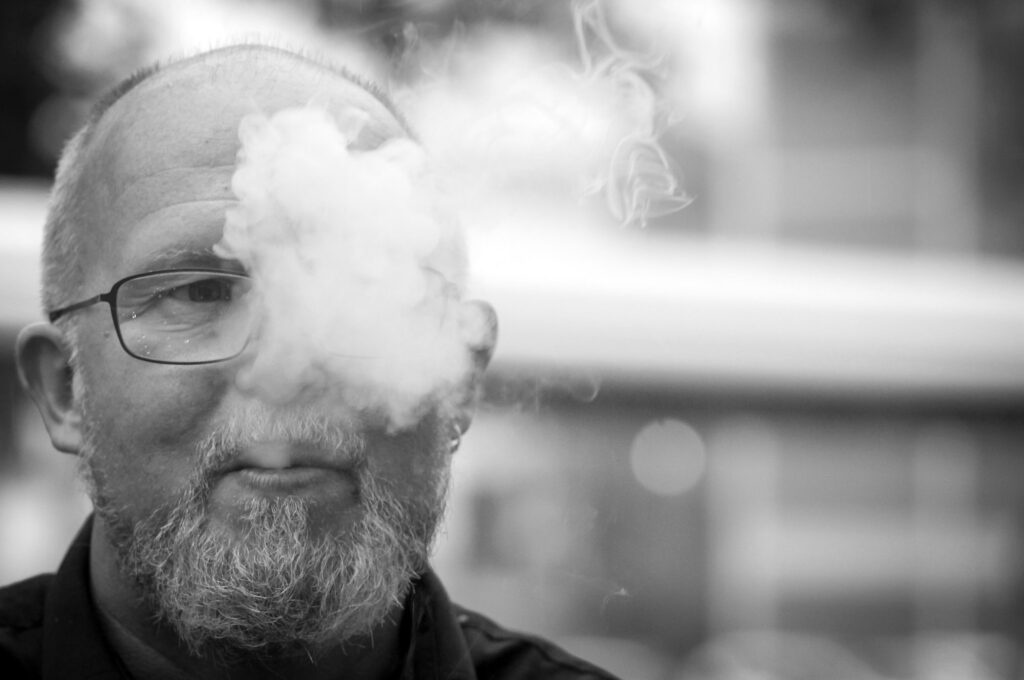Colm Kiernan: escribe resmas de poesía en su cabeza

Veils of the morning
writing reams of poetry in her head
on a Sunday morning lying in his bed
It rains against the window a perfect lazy day
she lies naked beside him
the most beautiful thing she had ever seen
with such colour structure and form
makes a second skin around him as he doesn’t touch her
he picks up his phone to read
she turns to the wall to cry
naked beside him not a bit of him to hold
everywhere she treads she treads on glass
and every time he bleeds
she can read him like a book
but could not interpret him
blinded by illusion
she makes romantic gesture
gifts burned in suggestion
his need to hate himself
more passionate than her love
she lies
here spent beside him
with no more Yeats to give
Velos de la mañana
escribe resmas de poesía en su cabeza
un domingo por la mañana tendido en su lecho
llueve contra la ventana es día perfecto para el descanso
ella yace desnuda a su vera
la cosa más hermosa que jamás haya visto
con tal estructura color y forma
esa segunda piel que le circunda sin apenas tocarla
toma su teléfono para leer
ella se vuelve hacia la pared para llorar
aunque desnudo a su lado, nada de él para abrazar
dondequiera que pisa, pisa el vidrio
y cada vez sangra más
ella puede leerlo como un libro
pero no pude interpretarlo
cegada por la ilusión
ella hace un gesto romántico
ofrendas quemando lo sugerido
su necesidad de odiarse a sí mismo
más apasionada que el amor
de quien descansa
aquí a su lado
sin más Yeats para dar
Have I died enough
Have I died enough, enough times,
have I died well enough deep enough hard enough
with enough feeling,
enough passion, desire, fury, distress, frenzy,
With enough storm, wrath, suffering, drama…. intensity
What is enough, how many times is enough
how long does it take to do a good death
and when dead hey what then?
Rather disturbing eh? distant, detached, desolate, stiff, rigid and cold
with the worlds best bitch face
I mean your there rotting on the inside
and on the outside everything has stopped,
your not exactly communicative are you?
Its not like you can talk or move around or anything
Its not like you can tell the person beside you what you want,
need or how you feel, now can you?
You are dead, gone, done, finished
You sort of have stopped with everything
whether you want things to be this way or not
You have frozen mid riff,
you have a fractured, tattered, shredded, future
You can no longer change things, change yourself or your world
fix the hole that’s being dug
You are dead,
and now what?
Have I died enough…..
¿He muerto lo suficiente?
¿He muerto lo suficiente, suficientes veces?
¿He muerto lo suficientemente bien, lo suficientemente profundo, lo suficientemente intenso?
con suficiente sentimiento,
suficiente pasión, deseo, furia, angustia, frenesí,
Con suficiente tormenta, ira, sufrimiento, drama…. intensidad
¿Qué es suficiente, cuántas veces es suficiente?
¿cuanto tiempo se tarda en conseguir una buena muerte?
¿Y cuando muera, entonces qué?
Completamente perturbador, ¿eh? distante, descompuesto,
desolado, duro, rígido y frío
con la mejor cara de espanto del mundo
Me refiero a que estás ahí pudriéndote por dentro
y por fuera todo se ha detenido,
no eres lo que se dice comunicativo, ¿verdad?
No es que puedas hablar o moverte ni nada
No es que puedas decirle a la persona que está a tu lado lo que quieres
Lo que necesitas o cómo te sientes, ¿dime, puedes?
Estás muerto, ido, aniquilado, acabado
De alguna manera te has detenido con todo
quieras que las cosas sean así o no
Tienes un costado medio congelado
tienes un futuro fracturado, andrajoso, destrozado
Ya no puedes cambiar las cosas, cambiarte a ti mismo o a tu mundo
concluye el hoyo que se está cavando
Estás muerto,
¿Y ahora qué?
¿He muerto lo suficiente …?
(Traducción del inglés al español de Aleisa Ribalta Guzmán)
Colm Kiernan is a cultural worker originally from Ireland but now living in Sweden. He likes to use his emotions to paint pictures with words. He realised early in life that no matter how much he talked around a subject words didn’t have the power to convey his feelings, being hampered by logical structures. He finds that words when used in poetry for him paint between the lines. Flowing beyond the confines of realism and logic to bare self. A nudity of the soul inconceivable except in the hope of a poem. His poetry defines his inner self.
Aleisa Ribalta. (La Habana, 1971). Nacida en Cuba. Reside en Suecia desde 1998. Es poeta, traductora y coordinadora cultural. Ingeniera de profesión, se desempeña como docente de asignaturas técnicas y no directamente relacionadas con la literatura como: Diseño de Interfaces Gráficas, Diseño Web y Programación de Aplicaciones. Ha publicado Talud (Ekelecuá Ediciones, 2018), un primer poemario que apareció ese mismo año traducido al catalán en edición bilingüe Talús / Talud (bokeh, 2018) y Tablero (Verbo(des)Nudo, Chile, 2019). Tiene en preparación los poemarios Cuaderna, bao y regala y Poemas Intersexuales.

